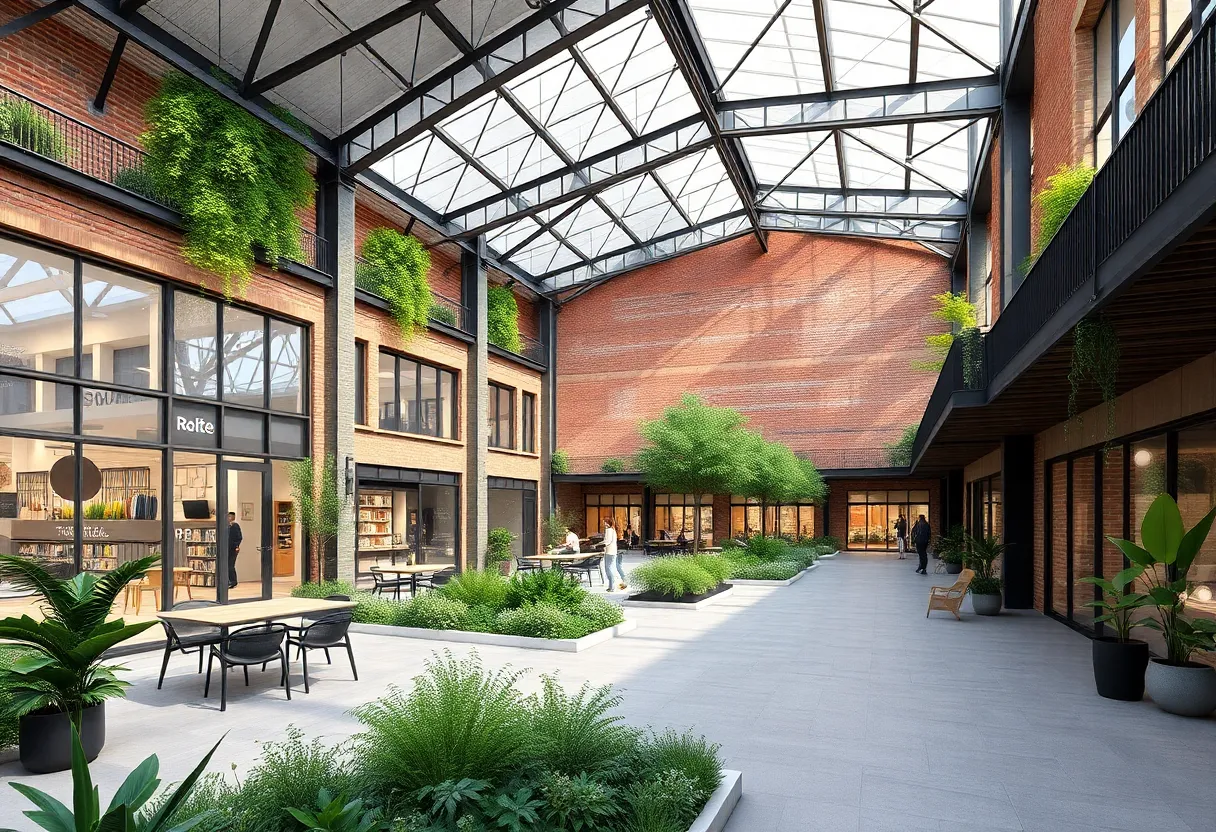Tucson, AZ, October 26, 2025
A $50 million revitalization project in downtown Tucson aims to transform blighted warehouses into mixed-use developments featuring retail shops, co-working spaces, and affordable housing. Developer Sarah Klein leads this initiative, which includes sustainable practices and a commitment to boosting the local economy and addressing urban decay. Construction is set to start next month, with completion expected by 2027, promising significant community and economic benefits.
Tucson Developer Unveils $50 Million Warehouse Revitalization Project
Tucson, AZ – A major $50 million revitalization project aimed at transforming blighted warehouses in downtown Tucson into vibrant mixed-use developments was announced recently. Led by developer Sarah Klein, originally from Manhattan, the initiative promises to introduce retail shops, co-working offices, and affordable housing units, boosting the local economy and addressing urban decay in the area.
The project targets several underutilized warehouse buildings in the heart of downtown, areas long plagued by abandonment and neglect. By repurposing these structures, the development seeks to create a dynamic hub that attracts both residents and visitors. Construction is scheduled to begin next month, with full completion expected by 2027. This timeline reflects a commitment to efficient project management while ensuring high-quality outcomes.
Local business leaders have expressed optimism about the potential impact, anticipating increased foot traffic and broader economic growth. The addition of retail spaces is expected to draw in new stores and eateries, while co-working offices could appeal to startups and remote professionals seeking affordable, modern workspaces. The inclusion of affordable housing units addresses a critical need in Tucson, where housing costs have risen alongside population growth.
Project Details and Features
The revitalization effort will convert the warehouses into a seamless blend of commercial and residential spaces. Retail shops will occupy ground-floor areas, offering space for local boutiques, cafes, and specialty stores. Above these, co-working offices will provide flexible leasing options for businesses of all sizes. Residential components will include a mix of affordable and market-rate units, prioritizing accessibility for low- and middle-income families.
Sustainability is a core focus, aligning with Tucson’s broader vision for urban development. The project incorporates green building practices, such as energy-efficient materials, solar panel installations, and water conservation systems. These features not only reduce operational costs but also minimize environmental impact, setting a standard for future developments in the region.
The site’s location in downtown Tucson positions it as a catalyst for neighborhood improvement. Proximity to existing cultural attractions, public transit, and employment centers enhances its viability. Enhanced pedestrian walkways and bike lanes will connect the development to surrounding areas, promoting walkability and reducing reliance on personal vehicles.
Economic and Community Impact
Economically, the project is poised to generate hundreds of jobs during the construction phase, from skilled trades to administrative roles. Once operational, it could sustain ongoing employment in retail, maintenance, and management. Local leaders view this as a timely investment that stimulates commerce without straining city resources.
Community benefits extend beyond employment. Affordable housing will help alleviate pressure on Tucson’s rental market, where demand often outpaces supply. The mixed-use design encourages a sense of place, fostering social interactions and supporting small business ownership. By revitalizing blighted properties, the initiative tackles visual and structural blight, improving overall city aesthetics and safety.
Alignment with City Goals
This development dovetails with Tucson’s strategic plans for sustainable growth. The city has prioritized adaptive reuse of existing structures to preserve historical elements while modernizing infrastructure. Zoning approvals were secured after community consultations, ensuring the project meets local needs. Funding combines private investment with potential public incentives, though details remain focused on the core $50 million commitment.
Developer’s Vision
Sarah Klein, drawing from her experience in Manhattan’s competitive real estate scene, identified Tucson’s untapped potential early on. Her approach emphasizes community integration, avoiding the pitfalls of generic urban projects. The initiative reflects a belief in Tucson’s capacity for innovation and resilience, positioning the city as an emerging destination for creative industries and lifestyle-driven living.
As construction ramps up, stakeholders will monitor progress closely. Early phases include site preparation and foundational work, with community updates planned regularly. The project’s success could inspire similar efforts across Tucson, reinforcing the city’s trajectory toward a more inclusive and prosperous future.
FAQ
What is the scope of the $50 million revitalization project in downtown Tucson?
The initiative includes retail shops, co-working offices, and affordable housing units, transforming blighted warehouses into trendy mixed-use spaces.
Who is leading the Tucson warehouse revitalization project?
Developer Sarah Klein, originally from Manhattan, is leading the project.
When will construction begin and end for the project?
Construction begins next month, with completion slated for 2027.
What do local business leaders expect from the project?
Local business leaders praise the move, expecting a surge in foot traffic and economic growth.
How does the project align with broader goals?
This project aligns with the city’s vision for sustainable urban development.
Key Features of the Revitalization Project
| Feature | Description |
|---|---|
| Investment Amount | $50 million |
| Target Structures | Blighted warehouses in downtown Tucson |
| Components | Retail shops, co-working offices, affordable housing units |
| Developer | Sarah Klein from Manhattan |
| Start Date | Next month |
| Completion Date | 2027 |
| Expected Impact | Surge in foot traffic and economic growth |
| Alignment | City’s vision for sustainable urban development |
Deeper Dive: News & Info About This Topic
HERE Resources
Tucson Boosts Tech Sector with New Startup Hub
Tucson Mourns Loss of Real Estate Pioneer Franklin L. Montgomery




